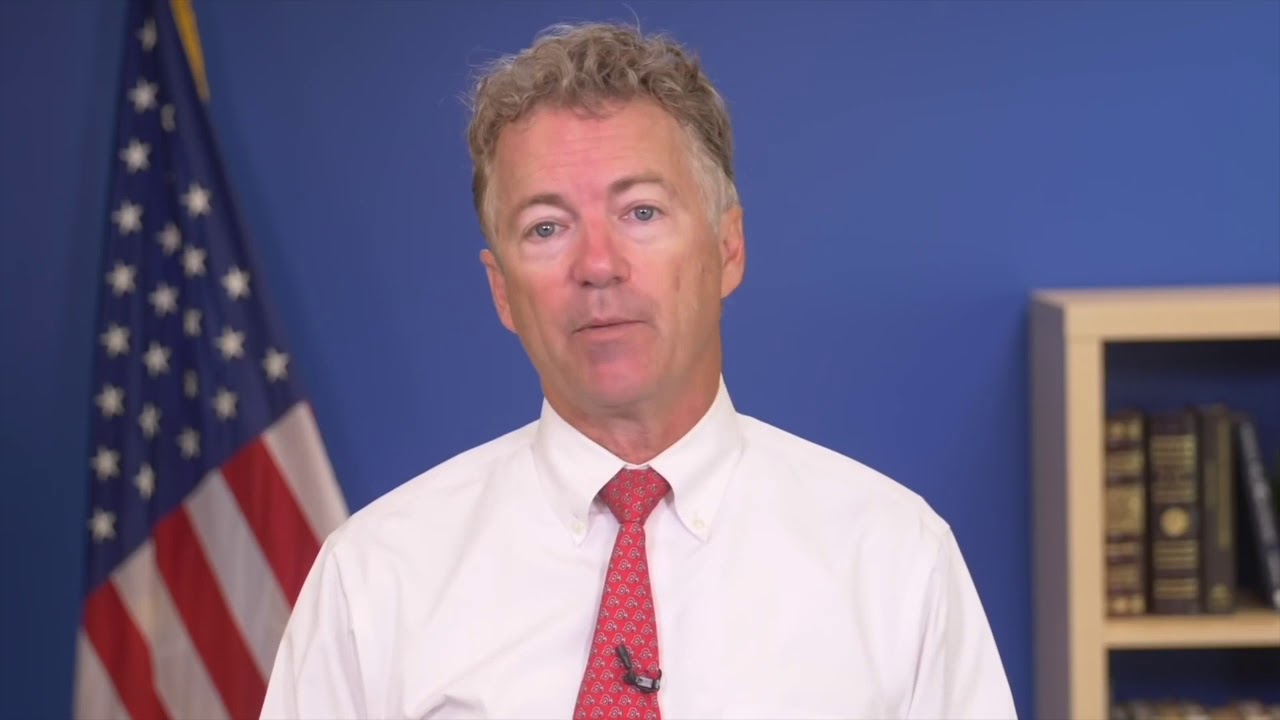Politics
Rand Paul Files Bill To Increase Hemp THC Limit And Address Other Industry Concerns

Sen. Rand Paul (R-KY) on Tuesday introduced a bill that would triple the concentration of THC that can be in legal hemp plants and address multiple other concerns the industry has expressed about proposed federal regulations for the crop.
Hemp and its derivatives were legalized under the 2018 Farm Bill, and the U.S. Department of Agriculture (USDA) quickly got to work developing rules for the market. But industry stakeholders have strongly protested certain restrictive regulations that they say could inhibit the sector’s growth.
Paul’s new Hemp Economic Mobilization Plan (HEMP) Act aims to resolve those problems by codifying four specific rules for the industry.
For years, I’ve led the fight in Washington to restore one of Kentucky’s most historically vital crops by legalizing industrial hemp. I am proud the bill has strong support…Read more here: https://t.co/tBuIIQaRza pic.twitter.com/zjG9LnBcdL
— Senator Rand Paul (@RandPaul) December 15, 2020
Perhaps the most common complaint that lawmakers have heard from hemp businesses is that hemp is federally defined as containing no more than 0.3 percent THC. They say that’s too low, and so the bill would increase that threshold to one percent.
It would also address potential problems with testing requirements under USDA’s proposed regulations. The agency said hemp processors would get a 15-day window to test the crop’s flower to ensure that the THC concentration is within the allowed limits. But testing flower can be onerous and farmers have said it would stretch their resources thin, not to mention that the plant’s THC is significantly impacted by environmental factors.
To fix that issue, the senator is pushing for final hemp products themselves to be tested, rather than the initial flower from the plant.
The legislation also calls for the establishment of a “seed certificate” to accompany hemp in transport. There have been instances where law enforcement has seized the legal crop, believing it to be illicit marijuana, and so processors would carry a certificate stipulating that the hemp that they’re transporting contains the lawful THC limit.
Finally, the bill would create a definition for the margin of error when it comes to THC testing. While the current interim final rule for hemp gives the Drug Enforcement Administration (DEA) discretion in determining that margin, Paul is proposing “using 0.075 percent as the standard MU, giving farmers and processors the certainty they have requested,” according to a one-page overview of the measure.
“For years, I’ve led the fight in Washington to restore one of Kentucky’s most historically vital crops by legalizing industrial hemp,” the senator said in a press release. “We achieved a hard-won victory, but there is still work to do to prevent the federal government from weighing down our farmers with unnecessary bureaucratic micromanaging.”
“My legislation will help this growing industry reach its full economic potential, and I am proud the bill has strong support all the way from local Kentucky farmers and activists to national groups, including the American Farm Bureau Federation,” he said.
As USDA works to finalize rules for the industry, it has approved nearly 70 state and tribal regulatory hemp proposals and recently awarded an advocacy group $200,000 to support America’s international hemp trade.
In October, USDA closed an extended public comment period on its proposed hemp regulations after temporarily reopening the feedback period due to strong pushback from stakeholders, many of whom said the policies were too restrictive. An initial comment round saw more than 4,600 submissions.
Due to the concerns, Congress approved a continuing resolution that extends a current hemp pilot program established in 2014 through September 2021. That program, which many in the industry feel is more flexible than USDA’s proposed rules, was initially set to expire in October.
The department announced in October that it is planning to distribute a national survey to gain insights from thousands of hemp businesses that could inform its approach to regulating the industry.
Also that month, USDA issued and then rescinded guidance on providing federal loans for hemp processors.
Several members of Congress sent a letter to USDA and other federal agencies last month, telling them to better coordinate their hemp policies.
Amid the coronavirus pandemic, hemp industry associations pushed for farmers to be able to access to certain COVID-19 relief loans—a request that Congress granted in the most recent round of coronavirus legislation.
While USDA previously said that hemp farmers are specifically ineligible for its Coronavirus Food Assistance Program, that decision was reversed. While the department initially said it would not even reevaluate the crop’s eligibility based on new evidence, it removed that language shortly after Marijuana Moment reported on the exclusion.
While Paul’s legislation seeks to resolve problems in law enforcement identification of hemp versus marijuana, the Department of Justice is also issuing another federal agency a grant to help to develop a method of differentiating the cannabis crops.
It’s not clear whether the senator’s bill will advance with the limited time left in this session, but it stands to reason that it would have bipartisan support if a new version came up next year.
“We appreciate Sen. Paul’s leadership and support for hemp farmers in Kentucky and across the United States,” Vote Hemp President Eric Steenstra said. “The HEMP Act makes critical improvements that will better allow farmers to successfully grow and profit from hemp.”
Kentucky Hemp Association President Tate Hall and Vice President Jana Groda said in a joint statement that the HEMP Act “will help farmers, processors and retailers in our young hemp industry.”
“We believe that loosening up some important interstate business requirements are a much-needed step toward more prosperous times in the hemp economy,” they said.
Read Sen. Rand Paul’s HEMP Act below:
Hemp act of 2020 by Marijuana Moment
Founder Of Anti-Marijuana Group Lobbies Biden To Nominate Him For White House Drug Czar
















